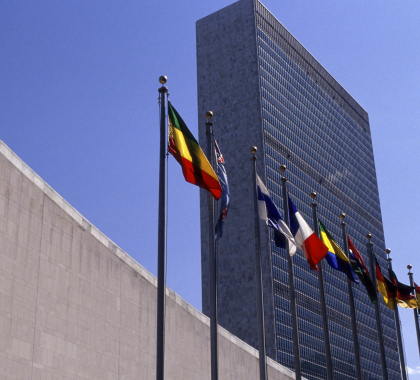Editor’s Note: J. Scott Armstrong is a professor at the Wharton School of the University of Pennsylvania. Armstrong was a founder of the International Institute of Forecasters, the Journal of Forecasting, the International Journal of Forecasting, and the International Symposium on Forecasting. This interview was conducted after Armstrong was presented with the 2017 Lifetime Achievement in Climate Science Award at The Heartland Institute’s 12th International Conference on Climate Change.
Burnett: You are a professor of business and one of the developers of forecasting as a science. What motivated you to apply scientific forecasting to climate change and climate policy?
Armstrong: In my first job, as an industrial engineer at Eastman Kodak in 1960, I noticed my colleagues were making judgmental forecasts of how many workers were needed. I tested a new method and found forecasts using scientific principles were cheaper and more accurate.
Over my career, I have continued to look for ways to use the scientific method to improve responses to important problems. Kesten Green, [senior research fellow at the Ehrenberg-Bass Institute at the University of South Australia Business School], suggested we apply the findings from scientific research on forecasting to the global warming alarm.
We became aware of government funding of research to support global warming policies. They were made to show the detrimental effect of global warming on X, where X might, and has been, virtually anything, all assuming the global warming alarm was based on valid forecasts.
We decided to audit the forecasting procedures of the U.N. Intergovernmental Panel on Climate Change (IPCC), which are responsible for official projections of climate changes and the effects of climate changes, upon which government policies are based. We found the procedures described in IPCC’s Fourth Assessment Report violated 81 percent of the 89 relevant scientific forecasting principles when forecasting global temperature.
Given the importance of our findings—how can billions of dollars of government spending and regulations that harm free markets be justified without valid forecasts?—we considered that we had a responsibility to make our findings known to other scientists and to the public.
Burnett: There are 139 principles of scientific forecasting. Can you tell us about their origin?
Armstrong: I asked 39 researchers in forecasting to develop a set of principles for the methods they have an expertise in and enlisted 123 expert reviewers to confirm the principles were consistent with experimental evidence. The principles were published in the Principles of Forecasting handbook in 2001.
Burnett: You claim IPCC forecasts violate the “golden rule of forecasting.” What is that?
Armstrong: The golden rule is to be conservative, meaning one’s forecasts should be consistent with cumulative knowledge about a situation and about forecasting methods. There are 28 golden rule guidelines. On average, following a single guideline reduces forecast errors by more than 30 percent compared to currently common practices.
The IPCC Third Assessment Report, 2000, Chapter 14, Section 14.2.2.2, stated “the long-term prediction of future climate states is not possible.” That is consistent with the golden rule, which suggests that no change is the best forecasting model for such a situation. It was omitted from the IPCC’s Summary for Policymakers report given to the media and to government officials and was ignored in the pronouncements made in the summary, both of which suggested that IPCC could and was making such forecasts.
IPCC provides forecasts in the form of scenarios built on the judgments of people who believed that dangerous, manmade global warming was occurring. Not all scientists agreed. Indeed, the “Oregon petition,” signed by 32,000 climate scientists—all of whom posted their names, degrees, and addresses on the internet—disagreed with these judgments.
Burnett: What do you mean when you say the IPCC projections fail the three-legged-stool test for public policy?
Armstrong: To make public policy that has a chance of making things better, valid and reliable scientific forecasts are needed that [show] rapid global warming will occur and persist; the warming will be dangerous, and therefore costly; and the proposed policies will provide cost-effective prevention or remedies. Without scientific forecasts to support all three legs, making policy in response to the global warming alarm would be unethical. We have been unable to find any support for any of the three legs.
We should trust science. I have been publishing papers on the scientific method since the 1970s. During the past three years, Kesten Green and I have been writing a review of research on the practice of science for our paper, “Guidelines for Science: Evidence-based Guidelines and Checklists.” Based on definitions of science by Francis Bacon, Isaac Newton, Benjamin Franklin, and other pioneers of the scientific method, we described eight criteria summarizing the scientific method: objective design, builds on cumulative knowledge, useful findings, full disclosure of methods and data, valid and reliable data, valid and simple methods, experimental evidence, and conclusions consistent with the evidence.
We applied the “Guidelines for Science” to the IPCC procedures and found they violated each of the scientific criteria.
The global warming movement is an antiscientific political and propaganda movement that uses “advocacy research” to claim scientific support. It is not unusual for governments to do so. Kesten Green and I identified 23 government-supported programs related to claims of manmade damage to the environment. None were supported by scientific evidence, none were accurate, none helped, and 20 were harmful.
H. Sterling Burnett, Ph.D. ([email protected]) is a research fellow at The Heartland Institute.
INTERNET INFO
J. Scott Armstrong, “Ipcc’s Violation Of Forecasting Principles,” April 6, 2015: https://heartland.org/multimedia/podcasts/j-scott-armstrong-ipccs-violation-of-forecasting-principles






